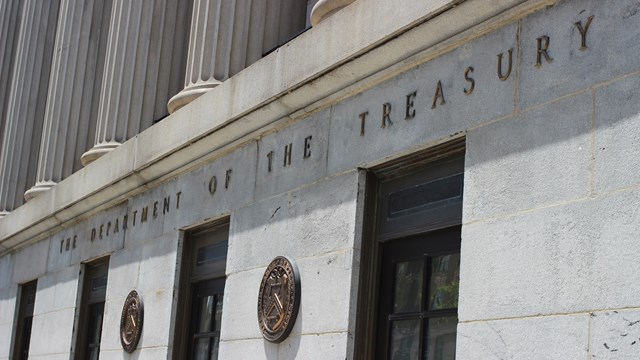If you think you can't make a difference, think again. One very important benefit of membership in local and national organizations for co-op and condo residents is that they get your voices heard by city, state and federal law makers. The Federation of New York Housing Cooperatives (FNYHC) and the Council of New York Cooperatives (CNYC) in New York City and the Alexandria, Virginia-based National Association of Housing Cooperatives (NAHC) are in frequent contact with legislators lobbying for the issues that matter to you.
The Federation, the Council and the NAHC share many of the same goals. Protecting boards from criminal liability, increasing fire safety in high-rises, extending the popular real estate tax abatement program and modifying the 80/20 Rule are key issues on the legislative agenda of these co-op and condo champions for 1999.
The bulk of the Council's proposals are at the state level, but occasionally the organization works to introduce a proposal at the city or federal level. "As problems arise, we will jump on it and try to deal with a particular situation," explains Stuart Saft, the Council's chairman of the board and a partner with the Manhattan law firm Wolf Haldenstein Adler Freeman & Herz, LLP.
According to Greg Carlson, president of the Federation, under the administration of New York City Mayor Abe Beame the state took over all financial responsibility and oversight for the city. Since then, anything having to do with finances - such as tax abatements, valuation of real estate taxes or veteran exemptions - has had to go through the state legislature. Other types of proposals such as lead abatement or fire safety are taken up by the City Council.
In some cases, as with regulations concerning lead safety in residential dwellings, the city may pass one set of rules, while the state and federal governments each passes its own. Sometimes the City Council will obtain the Mayor's approval and pass a Home Rule that is sent up to Albany. This type of city-endorsed proposal generally carries more weight than a bill proposed by a legislator. "The rule of thumb," adds Carlson, "is to comply with whichever criteria are most stringent."
"There are presently 32 bills that have been introduced in Albany concerning co-ops and condos," says Carlson. The Federation is lobbying for a number of legislative proposals including the creation of a separate part in the New York City housing court (there is currently a pilot program under way, but the Federation and others are calling for a permanent part) and making all board meetings open to residents.
In Albany, the Council is calling for a long-term tax reform plan for fairness to homeowners in co-ops and condos; protecting volunteer boards from criminal liability; a separate part in housing court for co-op and condo issues; improved conversion laws including a requirement that the majority of directors be resident-shareholders and that sponsors uphold their obligation to complete the conversion; and a way to improve condos' ability to collect delinquent payments from unit owners.
"Normally we have about a dozen pieces of legislation on the state and federal level," says Saft. "We'll write a proposal for a bill and run it by a number of legislators who we think are aware of the co-op and condo community's problems. Queens borough president Claire Shulman will frequently get it introduced for us." According to Carlson, Shulman is the borough president who is most attuned to the needs of the co-op and condo community. "Since forming a Co-op and Condo Task Force in the late 1980s she has had many ideas for the betterment of co-op and condo residents," Carlson explains.
Shulman's legislative agenda includes eight housing bills that she will ask the New York State Legislature to pass: Protection for co-op and condo board members from criminal liability where they had no knowledge of the illegal condition(s) in the building; the creation of a private right of action under the Martin Act that would allow a shareholder to sue the sponsor or seek an investigation by the Attorney General without the consent of the corporation; establishment of qualification and certification requirements for co-op property managers; an increase from 15 to 35 percent for the number of tenants who must purchase apartments in a non-eviction conversion; correction of code violations by sponsors before a conversion will become effective; authorization for the Queens West Development Corporation to build condos in the Queens West project; and an initiative to ban co-op warehousing by requiring that sponsors continue to market units after the conversion has been approved.
"Thanks to the superb work of our legislative delegation, 1998 was a tremendous year of achievement," says Shulman. "Co-op owners will now be exempt from the city parking sales tax and co-op corporations can now collect rent directly from subtenants of defaulting apartment owners. However," adds Shulman, "co-op owners need further protection from the types of abuses that occurred in the 1980s. I look forward to working with our representatives in Albany to achieve passage of these important legislative proposals to protect and improve the lives of co-op and condo residents."
On the federal level, the Federation, Council and NAHC are all pulling for modification of the 80/20 rule of Section 216 of the Internal Revenue Service Code, which requires that a co-op derive 80 percent of its revenue from tenant/shareholders. "If a co-op has more than 20 percent of income from commercial sources," explains Carlson, "residents lose all their tax deductions." Because of this restriction, he explains, "co-ops can't charge as much as the market would allow to rent commercial space."
On August 4 New York State Representative Chuck Schumer introduced The Cooperative Housing Owners' Tax Relief Act (H.R. 4397) to modify Section 216. Accountant Mark Shernicoff, treasurer of the NAHC and the Council, sees the 80/20 dilemma up close and personal. "The bill introduced by Senator Schumer was drafted two years ago by attorney Joel Miller, a special counsel to the NAHC, in my conference room with the Council's executive director Mary Ann Rothman and Fred Weinshank, another accountant," says Shernicoff.
According to Judy Sullivan, NAHC's director of government relations, this proposal would better identify the types of revenues that a co-op could have without its stockholders being disqualified for homeowner tax benefits. It would provide protection in two situations in which the 80/20 rule can disqualify co-ops that truly do not have outside income, but rather are struggling to cope with hardships that were not of their own making. "In one situation," explains Sullivan, "the co-op's lender agrees to reduce the amount of the mortgage. However, because the amount of the reduction may constitute "˜bad income,' the very act that saves the co-op from bankruptcy may result in its disqualification as co-op. In the other situation," she adds, "the apartment owners have non-evictable occupants whose payments to the owners are far less than the amounts that the owners must pay to the co-op in monthly maintenance fees. Often such apartment owners will simply surrender their occupied apartments to the co-op and walk away. The co-op then collects only the smaller amounts being paid by the occupants, and these are now classified as "˜bad income.'"
"This is a very important bill," adds Shernicoff, who is also a partner in the accounting firm of Zucker & Shernicoff in Manhattan. "It will move us away from some of the arbitrariness of the gross income test to the gross receipts test which is much more manageable for co-ops, and a better measure of the extent to which the resources of the co-op are provided by the shareholders."
The property taxes paid by New Yorkers on single-family homes (tax class 1) are among the lowest in the greater metropolitan region. However, because of the city's tax class system, which includes co-ops and condos in tax class 2 and assesses these buildings as if they were income-generating apartment rentals, class 2 homeowners have paid substantially more real estate taxes than class 1 homeowners. Three years ago, in response to this inequity, the City Council passed legislation providing a tax abatement to apartment owners.
Unfortunately, the popular real estate tax abatement program sunsets June 30 after a three-year trial. Legislation was introduced in Albany by Assemblyman Pete Grannis to extend the program for an additional year during which a long-term program can be implemented. The bill was passed in the Assembly last year and sent to the Senate. It is now in the Senate Rules Committee.
"Assemblyman Grannis is very optimistic that the legislature will enact this proposal before we adjourn for the session this summer," says Peter Newell, a spokesman for the Assemblyman Grannis. "He has always been troubled by the disparity in the property tax burden between homeowners of co-op and condos and family houses. We've been frustrated by the city's failure to come up with a long-term plan, adds Newell.
The New York City Council's Housing Committee, chaired by Council Member Archie Spigner, is currently debating the best way to handle fire safety in multi-housing dwellings over six stories. "The laws that were written years ago for smaller residential structures no longer apply or provide adequate safety for people," says City Council member Walter McCaffrey, who sponsored the legislation requiring sprinkler systems to be installed in all new multi-housing construction over six stories.
"Obviously fire sprinklers are a very effective tool in protecting people who are in high risk buildings who would be difficult to rescue in fire situations," says McCaffrey. The Giuiliani administration advocates mandating the installation of public announcement systems in lieu of sprinklers in existing buildings over six stories. "It is possible that this proposal will find its way into the bill," adds McCaffrey. Details that need to be worked out include whether the technology will be wireless and whether the announcements would be heard in common areas or inside individual units.
According to Carlson, the handling of fire safety in existing buildings is a bone of contention. "The Federation is in favor of safety and believes co-op and condo residents should be trained on safety issues, but we don't believe all buildings should be lumped together. You have pre-war buildings that are combustible but equipped with fire escapes, and newer ones that are fire-proof," explains Carlson. "New construction should be required to install sprinkler systems, but it is too costly to require this in all existing buildings of over six stories."
The tragic death of a child resulting from a violation of the city's window guard guidelines resulted in criminal charges being brought against the board of a Brooklyn co-op in 1998. Last year Assemblyman Ivan Lafayette introduced a board liability bill in the Assembly where it was met with a positive response. "I didn't think we'd have a problem, but for some reason the bill didn't move in the Senate," says Lafayette. "We have major opposition from the Bar Association, because this law would reduce the opportunity to sue somebody."
"This is an important piece of legislation," says Lafayette. "Co-op and condo boards are unpaid people doing what is basically a thankless task. Unless it can be shown that they have criminal intent or deliberately exposed the building to some terrible consequence, they should not be subject to a suit, even if they have made an error in judgment - something that goes with any job." Lafayette feels that without this legislation co-ops and condos will suffer because they will lose good people. Lafayette is also a proponent of state licensing for property managers.
Keeping Tabs on Proposals
This is just a sampling of legislative proposals at the city, state and federal levels. The World Wide Web makes it easy to check on the status of the bills that affect you and to keep abreast of new issues. You can log on to the city's website at: www.council.nyc.ny.us/. Or visit the New York State Assembly at: www.assembly.state.ny.us/ALIS/billsearch.html. The Federation's address is: www.FNYHC.org. The Council resides at: www.cnyc.com.







Leave a Comment